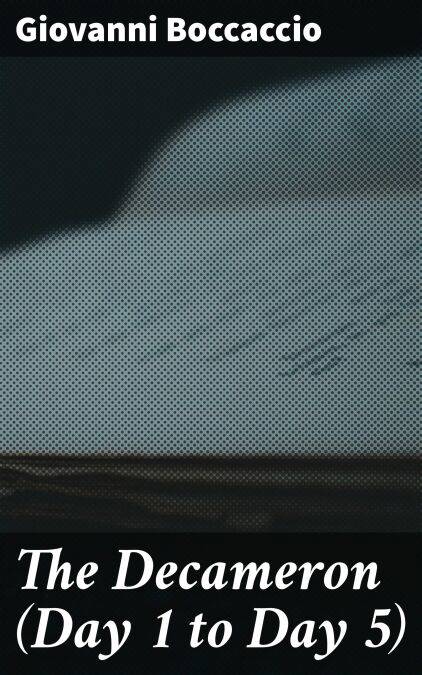
- Afhalen na 1 uur in een winkel met voorraad
- Gratis thuislevering in België vanaf € 30
- Ruim aanbod met 7 miljoen producten
- Afhalen na 1 uur in een winkel met voorraad
- Gratis thuislevering in België vanaf € 30
- Ruim aanbod met 7 miljoen producten
Zoeken
The Decameron (Day 1 to Day 5) E-BOOK
Containing an hundred pleasant Novels
Giovanni Boccaccio
E-book | Engels
€ 0,49
Omschrijving
Giovanni Boccaccio's "The Decameron," particularly its first five days, unfolds as a captivating tapestry of tales narrated by a group of ten young individuals who escape the plague-ridden Florence. Written in the 14th century and richly layered in vernacular Italian, Boccaccio employs a frame narrative that interlaces comedy, tragedy, and moral lessons, showcasing both the follies and virtues of human nature. The tales reflect the socio-cultural milieu of the time, offering insights into love, fidelity, and social stratification, while simultaneously challenging the norms of medieval literature with its candid exploration of sexuality and human desire. Boccaccio, a precursor to the Renaissance literary movement, was deeply influenced by the tumultuous events of his era, particularly the Black Death, which incited his reflections on mortality and the human condition. As a scholar, poet, and playwright, his diverse experiences in the changing landscapes of 14th-century Italy enriched his narrative style and thematic depth, allowing "The Decameron" to serve as both a repository of contemporary life and a critique of societal norms. This seminal work is essential for readers seeking to understand the evolution of narrative form and the complexities of human behavior, resonating with themes that remain relevant today. "The Decameron" invites readers into Boccaccio's vibrant world, where they can appreciate the intricacies of storytelling and the timeless nature of love and ambition.
Specificaties
Betrokkenen
- Auteur(s):
- Vertaler(s):
- Uitgeverij:
Inhoud
- Aantal bladzijden:
- 618
- Taal:
- Engels
Eigenschappen
- Productcode (EAN):
- 4057664634221
- Verschijningsdatum:
- 21/11/2019
- Uitvoering:
- E-book
- Beveiligd met:
- Digital watermarking
- Formaat:
- ePub

Alleen bij Standaard Boekhandel
Beoordelingen
We publiceren alleen reviews die voldoen aan de voorwaarden voor reviews. Bekijk onze voorwaarden voor reviews.








